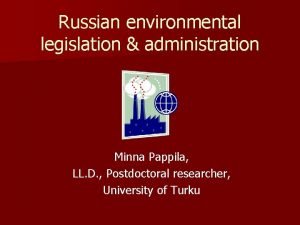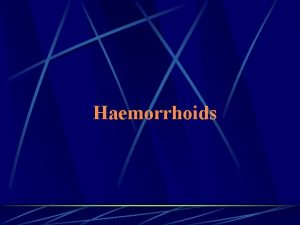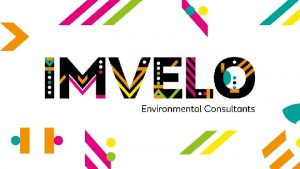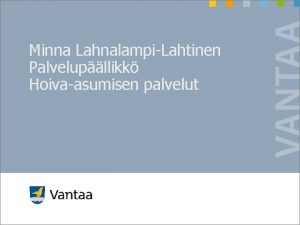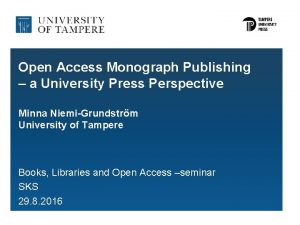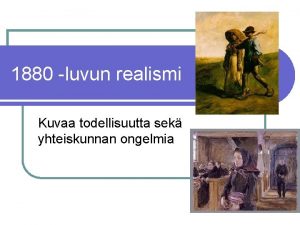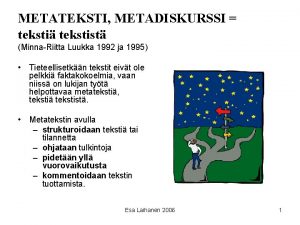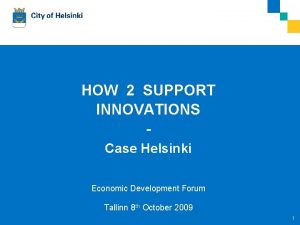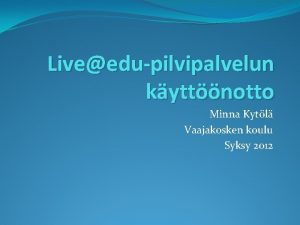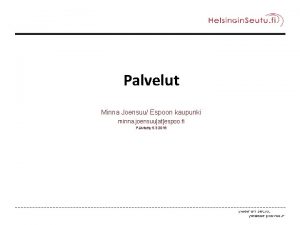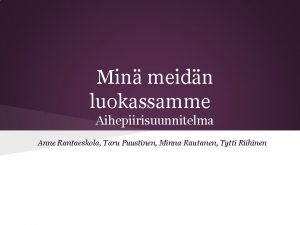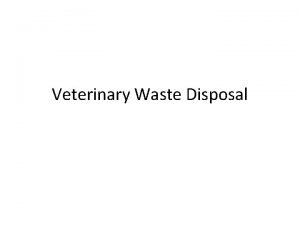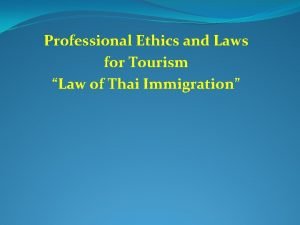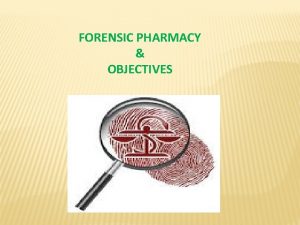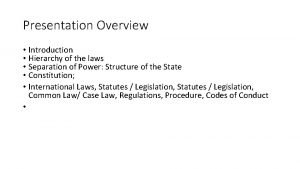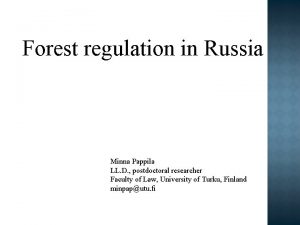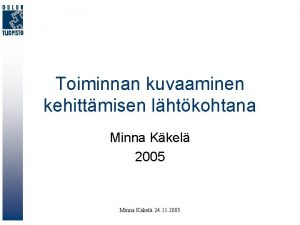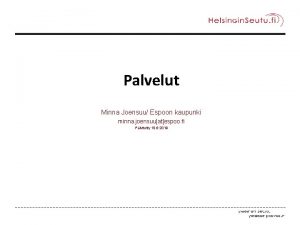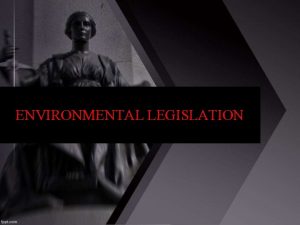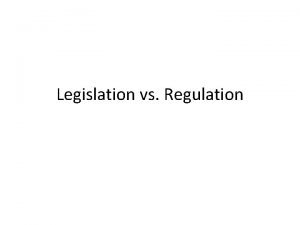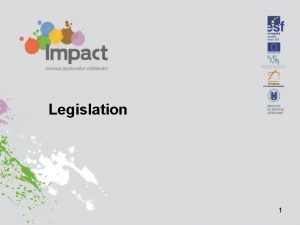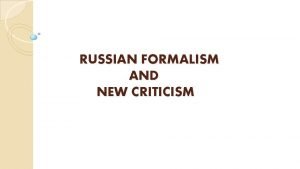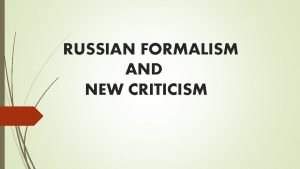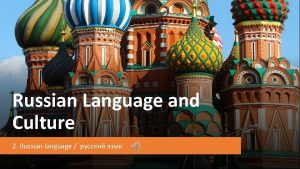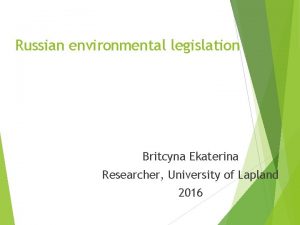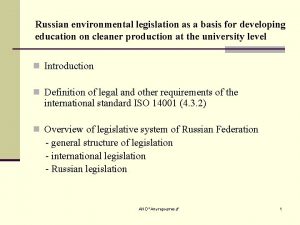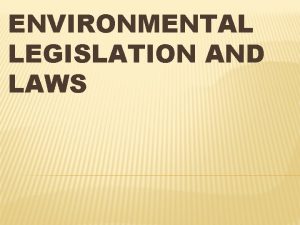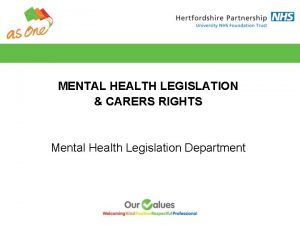Russian environmental legislation administration Minna Pappila LL D






















- Slides: 22

Russian environmental legislation & administration Minna Pappila, LL. D. , Postdoctoral researcher, University of Turku

n Meaning of laws in the Soviet Union § Communist party > law – E. g. telephone law § Strict environmental norms since 1970 § Production aims > legislation n Meaning of laws in Russia § Gorbatsov: Provovoe gosudarstvo § Putin 2000: Diktatura zakona § Medvedev 2008: we must overcome law-nihilism – Law works, but for whom and how?

Russians’ views on law & courts (Hendley, 2009) People do not think that law protects them, but they must protect themselves against the law n Law may be ok, but implementations deficient/lacks or laws are used for wrong purposes n Courts are necessary evils; people resort to courts only if there are no other ways left n – The main reason for avoiding courts are money, time and energy (also kind of fatalism, and urge to avoid conflicts); not so much the fear of ’telephone justice’ – It’s also hard to find a reliable lawyer & corruption is common in courts, too – http: //www. transparency. org/cpi 2012/results – People think that authorities are rarely sentenced for their misuse of official authority => people do not take authorities to courts – In 2003 only 43 % of Russians thought that it’s worth while to fight one’s case in court, in 2007 51 % – Russians seem to know then it counts to take a case to court, and when it doesn’t => sort of predictability => more cases in courts – http: //www. theguardian. com/environment/video/2013/nov/20/arctic-30 greenpeace-journalist-appeals-bail-video

Some facts of the Russian Federation n A federal state n The Constitutions was accepted in 1993 after a referendum n Constitution and other federal laws are above other laws (4 §)

Hierarchy of the statutes n The Constitution of the Federation n Constitutions of ’Subjects’ (Regions) n Federal laws n Regional laws n Decrees (ukaz) of the President n Decrees of the Government n Statutes of Ministries n Statutes of other authorities n Guidelines given by the highest courts

Regions i. e. federal subjects n 83 subjects or "constituent entities” of the Russian Federation are equal – – – 46 oblasts (provinces; область) — most common type of federal subjects with federally appointed governor and locally elected legislature. 21 republics (республика) — nominally autonomous, each has its own constitution and legislature; is meant to be home to a specific ethnic minority. 9 krais (territories; край) — essentially the same as oblasts. Title "territory" is historic, originally given because they were considered frontier regions. 4 autonomous okrugs (autonomous districts; автономный округ) — with substantial or predominant ethnic minority 2 federal cities (город федерального значения) — major cities that function as separate regions. 1 autonomous oblast (autonomous province; автономная область) — the only autonomous oblast is the Jewish Autonomous Oblast


Division of power n n n President State Duma + Federation Council (2 rep. /subj. ) = Federal Assembly Government of the Federation Courts of the Federation Competences (jurisdiction) of the Federation and Subjects: art. 71 -73 of the Constitution: – – – Jurisdiction of the Federation (71 §) Joint jurisdiction (72 §) Jurisdiction of the subjects (the rest, not listed)

The 616 -member parliament, termed the Federal Assembly consists of two houses: State Duma (the lower house) n 450 members n Elections n Drafts laws in three hearings & accepts them with the majority of votes n http: //www. youtube. com/ watch? v=Cz. Gt_E 5 SIo. A Federation Council (the upper house) n n n 166 members Representatives of the Subjects, two from each the Council is not directly elected, but instead chosen by territorial politicians Accepts (or rejects) laws after the Duma If rejects, State Duma may adopt a law with 2/3 majority

Governance n Federal governance n 8 federal districts n Governance of the subjects (regions) n Local governance (municipalities)

Polarized state of the Environment in Russia 65 % of the area rather undisturbed n Russia hosts 20 % of world’s water resources n 22 % of world’s forest resources n n About 15 % of Russia suffers from severe pollution (alarming state of environment) – In worst industrial areas (e. g. Irkutsk, Krasnojarsk, Norilsk) mortality rate 1, 5 -3 -times higher than in other regions – Outdated mill, increasing amount of waste & cars – only 40 % of waste water cleaned – Oil spills of oil companies annually 20 million tonns (5 % of total production) – Poor energy efficiency: 7 % of CO 2 emissions, even if only 1% of the GNP of the world; about 45 % of energy wasted


Attitudes n Political weight of environmental issues is low n Superpower & ecological superpower n Control of nature, huge projects n Economy > human health> environment – Skepticism towards climate change – Climate change or the bad state of the Baltic Sea does not worry Russians, ”nobody dyes because of them” –

Environment & Constitution of RF n Land other natural resources shall be utilized and protected in the Russian Federation as the basis of life and activity of the people living in corresponding territories. (9. 1 §) n Everyone shall have the right to favorable environment, reliable information about its state and for a restitution of damage inflicted on his health and property by ecological transgressions. (42§)

Environmental administration § In SU: Environmental Committee in 1988 § Ministry of Environment in 1991 – 3 levels of env. admin. : federal, regional, local § => Environmental Committee (Goskomekologiia) in 1996 § In 2000 Environmental Committee & Federal Forest Service were closed down => new Ministry of Natural Resources – Structural changes also afterwards => weak env. admin. § => in 2008 the name was changed: the Ministry of Natural Resources and Environment – Министерство природных ресурсов и экологии Российской Федерации http: //www. mnr. gov. ru

Supervision n n n Environmental supervision has been diminished continously since 1990 s Continuous changes in administration makes work difficult as well Unclear competences among authorities Local supervision authorities have sometimes too close connections to local industry State supervision, self-supervision by enterprises, public supervision The Federal Supervisory Natural Resources Management Service http: //rpn. gov. ru/

Tools of environmental regulation n Administrative-legal tools n Economic tools n Informational tools n Other tools

Administrative-legal tools – Planning § Environmental review (EIA), land use planning – Agreements § E. g. lease agreements – Advance surveillance: licenses § E. g. law on licensing certain activities, 2001, governemnt’s decree on hazardous wastes, 2002 – Afterwards surveillance+ sanctions

Economic means – Payment on the use of natural resources § E. g. water, land, forest, subsoil resources, hunting – Payments for polluting (immissions) § Discharges to air, water, soil + noise, heat, radiation that causes pollution § Payments for 214 kinds of air pollutants, 197 water pollutants, different kinds of waste – Environmental insurances § Does not function

Other means n Soft law – E. g. Voluntary certification: – ISO 14001, FSC, PEFC n Information – Persuasion – Informing consumers; ecolabels etc. – Environmental education – Federal State of the environment reports

Environmental legislation inadequate and inconstitent n Problems with implementation n Both federal and regional legislation n – Regional legislation is sometimes more progressive – The quality of regional legislation has improved in 2000 s n Environmental acts, e. g. : – Act on environmental protection – Water code, land code, forest code – Act on environmental expert review – Act on protected nature areas

Russian legislation can be found at n http: //www. consultant. ru n http: //www. priroda. ru/law/ n http: //www. mnr. gov. ru n www. idanmetsatieto. info (forest legislation in Finnish)
 Minna pappila
Minna pappila Chrinic anal fissure
Chrinic anal fissure Environmental legislation in construction
Environmental legislation in construction Minna lahnalampi-lahtinen
Minna lahnalampi-lahtinen Minna niemi-grundström
Minna niemi-grundström Minna canth tunnetuimmat teokset
Minna canth tunnetuimmat teokset Metateksti
Metateksti Minna maarttola
Minna maarttola Minna vakkilainen
Minna vakkilainen Minna kytölä
Minna kytölä Minna joensuu
Minna joensuu Anne rantaeskola
Anne rantaeskola Minna söderqvist
Minna söderqvist Minna aromaa
Minna aromaa Minna pajala
Minna pajala Minna-liisa rantaniemi
Minna-liisa rantaniemi Wireless health
Wireless health Veterinary waste disposal
Veterinary waste disposal Thailand former name
Thailand former name 2 types of legislation
2 types of legislation Forensic pharmacy
Forensic pharmacy Aviation legislation module 10 ppt
Aviation legislation module 10 ppt Hierarchy of legislation
Hierarchy of legislation
